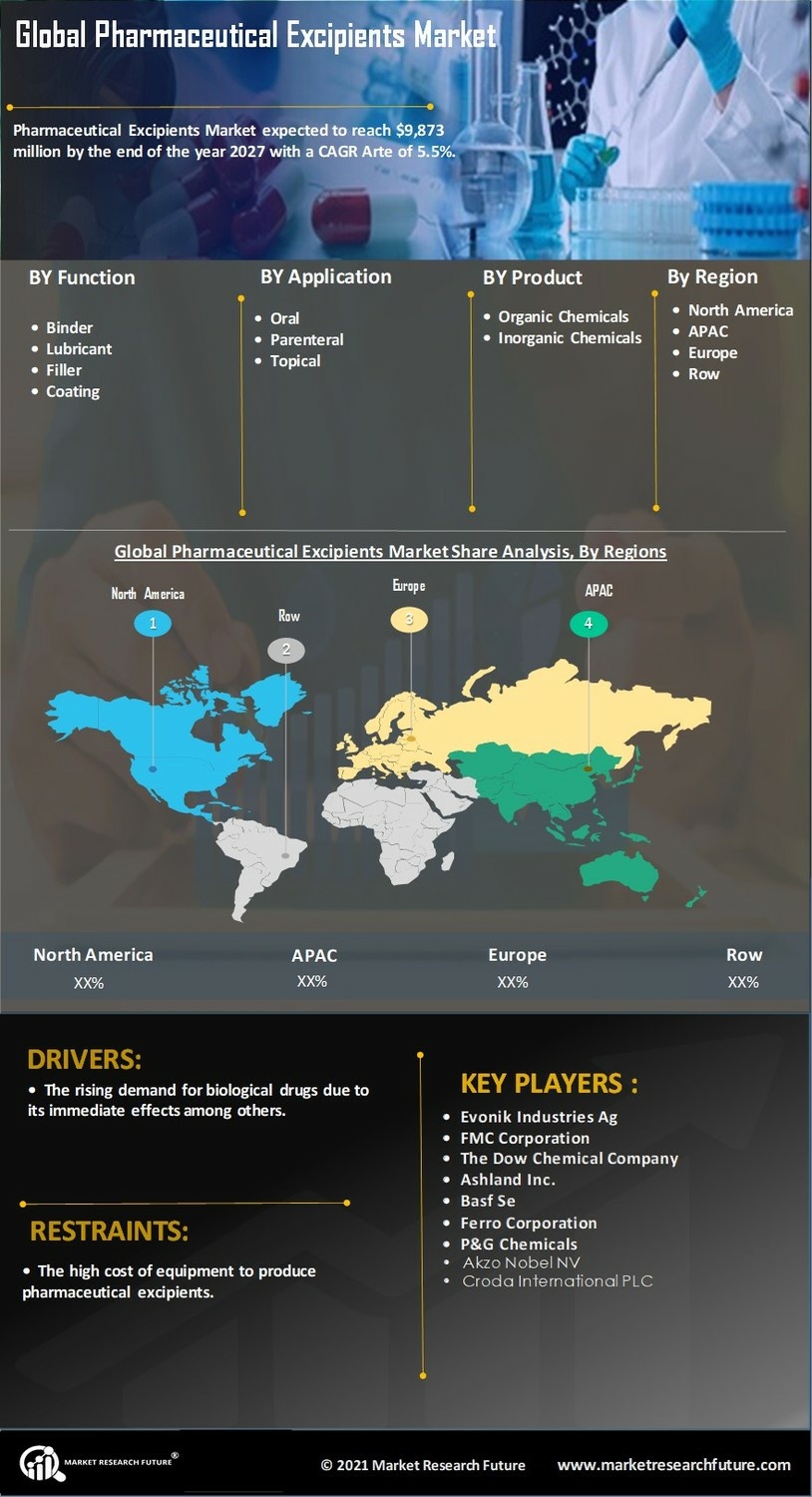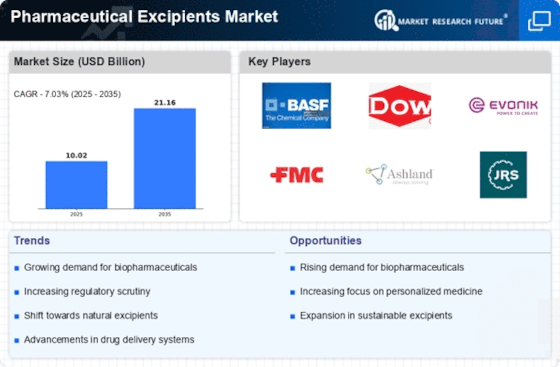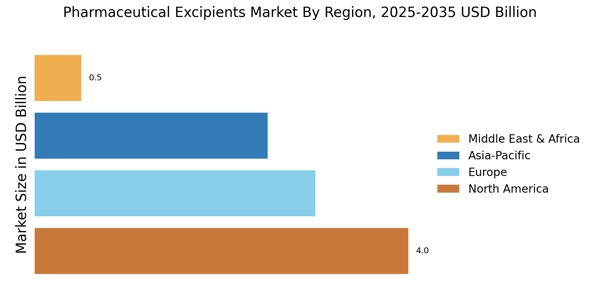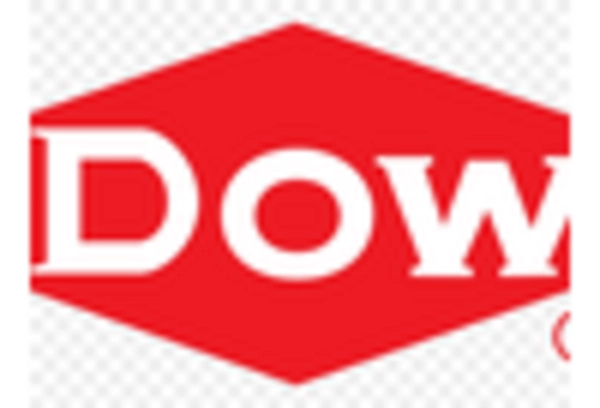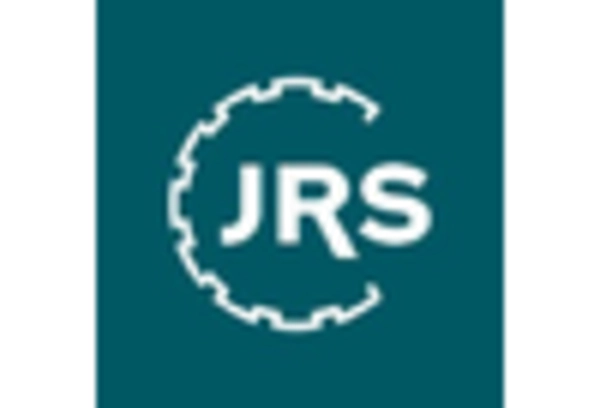Rise in Chronic Diseases
The prevalence of chronic diseases is on the rise, which is significantly influencing the Pharmaceutical Excipients Market. As the global population ages, the demand for effective medications to manage chronic conditions such as diabetes, cardiovascular diseases, and cancer is increasing. This trend necessitates the development of specialized excipients that can enhance drug efficacy and patient compliance. In 2025, it is anticipated that the market for excipients tailored for chronic disease management will account for a substantial share of the overall excipients market. This growing need for targeted therapies is likely to drive innovation and expansion within the Pharmaceutical Excipients Market, as manufacturers strive to meet the specific requirements of these complex formulations.
Increasing R&D Investments
The Pharmaceutical Excipients Market is experiencing a surge in research and development investments. Pharmaceutical companies are allocating substantial resources to innovate and enhance excipient formulations. This trend is driven by the need for more effective drug delivery systems and the growing complexity of drug formulations. In 2025, it is estimated that R&D spending in the pharmaceutical sector will reach unprecedented levels, potentially exceeding 200 billion USD. This influx of funding is likely to foster advancements in excipient technology, leading to improved performance and safety profiles. As a result, the Pharmaceutical Excipients Market is poised for growth, as companies seek to develop novel excipients that can meet the evolving demands of the healthcare sector.
Growing Demand for Personalized Medicine
The shift towards personalized medicine is significantly impacting the Pharmaceutical Excipients Market. As healthcare moves towards tailored therapies, the need for excipients that can accommodate individualized drug formulations is becoming increasingly apparent. This trend is driven by advancements in genomics and biotechnology, which enable the development of drugs that are specifically designed for individual patient profiles. The market for personalized medicine is projected to grow substantially, with estimates suggesting it could reach over 200 billion USD by 2030. This growth is likely to create new opportunities within the Pharmaceutical Excipients Market, as manufacturers seek to develop excipients that can support the unique requirements of personalized therapies.
Technological Advancements in Formulation
Technological advancements in formulation science are reshaping the Pharmaceutical Excipients Market. Innovations such as nanotechnology and 3D printing are enabling the development of excipients that offer enhanced functionality and performance. These technologies allow for the creation of more precise and efficient drug delivery systems, which are essential for modern therapeutics. As these technologies continue to evolve, they are expected to open new avenues for excipient development, potentially leading to the introduction of novel products that cater to specific therapeutic needs. The Pharmaceutical Excipients Market is likely to benefit from these advancements, as they facilitate the creation of more effective and patient-friendly formulations.
Regulatory Support for Advanced Excipients
Regulatory bodies are increasingly recognizing the importance of excipients in drug formulations, which is positively impacting the Pharmaceutical Excipients Market. Recent guidelines have been established to streamline the approval process for new excipients, thereby encouraging innovation. This regulatory support is crucial as it allows manufacturers to introduce advanced excipients that enhance drug stability and bioavailability. The market is projected to grow at a compound annual growth rate of approximately 6% over the next five years, driven by these favorable regulatory conditions. Consequently, the Pharmaceutical Excipients Market is likely to witness a proliferation of new products that align with regulatory expectations, ultimately benefiting patients and healthcare providers.
